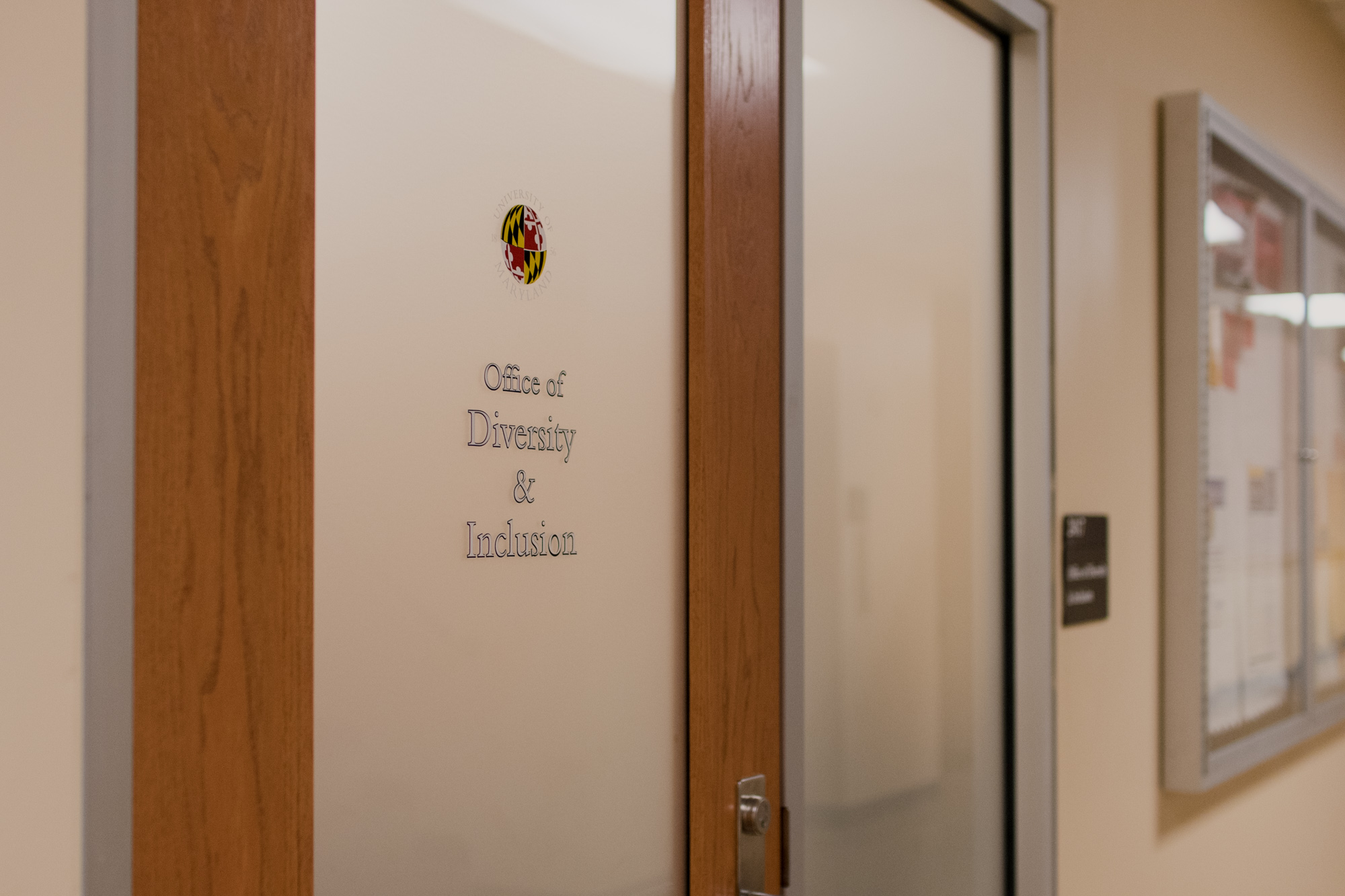The University of Maryland is searching for another person to help manage its hate bias response program.
Neijma Celestine-Donnor, who started as the program manager in April 2018, told The Diamondback on Friday that she estimates she began working in a higher position — the director for hate bias response and advocacy — about six months ago. A job posting for a new program manager was posted on a hiring site close to a month ago.
“There’s a lot of work to be done,” she said. “When you’re doing the responding, the recording, the data, the programming, the training — you can imagine that it’s probably not a one-person show.”
Celestine-Donnor largely handles the response to reported hate bias incidents — from slurs on whiteboards to anti-LGBTQ vandalism — by herself, with some support from a graduate assistant and from other administrative staff in the Office of Diversity and Inclusion.
“The hate bias response program is me,” she said with a laugh.
[Read more: The American Indian Student Union wants UMD to acknowledge it is built on tribal land]
Currently in the recruiting phase, she hopes to have the new program manager in place “sometime during the spring.”
The university first announced the program manager role about two years ago alongside a slew of new protocols after the death of 2nd Lt. Richard Collins.
Collins, a black student at Bowie State University, was fatally stabbed on this university’s campus in May 2017. Sean Urbanski, a white former student at this university, is set to stand trial on hate crime and murder charges in the killing this December after multiple delays.
The new program manager will join an office that’s seen high turnover in recent years. ODI’s leadership changed hands four times in about three years.
Its current leader, diversity and inclusion vice president Georgina Dodge, took the helm in June. And this academic year, the university announced Dodge would also oversee the Office of Civil Rights and Sexual Misconduct, which previous leadership said was understaffed and underfunded.
Eleven hate bias incidents have been reported so far this academic year, compared to 19 by the same time in 2018, according to ODI’s log. The log doesn’t show any updates since Oct.16 of this year.
[Read more: UMD faculty member joins with statewide coalition to improve Latinx census response]
ODI plans to have a report related to hate bias response “soon,” though Celestine-Donnor said she couldn’t give an estimate yet of when that would be.
“My hope is once the semester sort of winds down, and I’m not doing a bunch of other things, that I will be able to wrap this up,” she said.
Since the program doesn’t hand down punishments for hate bias incidents and doesn’t “have any information about sanctioning,” the report is “not really” going to include information about punishment, she said.
Often, conversations about hate bias at this university focus on outcomes for the person who committed an act, Celestine-Donnor said, and they should center around what happened with the person who was affected by an incident.
“Are they okay? What support are they receiving? How are they being advocated for?” she said. “My goal, really really, is to make sure that those impacted are being centered in the conversation.”



